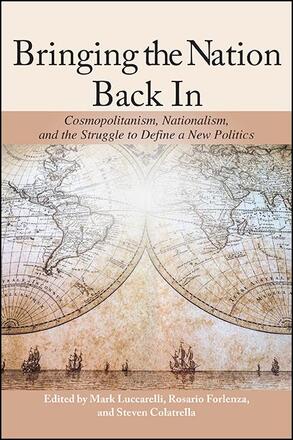
Bringing the Nation Back In
Cosmopolitanism, Nationalism, and the Struggle to Define a New Politics
Alternative formats available from:
Argues that concern with the nation and national community will be a key factor in redefining twenty-first-century politics.
Description
Bringing the Nation Back In takes as its starting point a series of developments that shaped politics in the United States and Europe over the past thirty years: the end of the Cold War, the rise of financial and economic globalization, the creation of the European Union, and the development of the postnational. This book contends we are now witnessing a break with the post-1945 world order and with modern politics. Two competing ideas have arisen—global cosmopolitanism and populist nationalism. Contributors argue this polarization of social ethos between cosmopolitanism and nationalism is a sign of a deeper political crisis, which they explore from different perspectives. Rather than taking sides, the aim is to diagnose the origins of the current impasse and to "bring the nation back in" by expanding what we mean by "nation" and national identity and by respecting the localizing processes that have led to national traditions and struggles.
Mark Luccarelli is Associate Professor of American Studies at the University of Oslo, Norway. His books include The Eclipse of Urbanism and the Greening of Public Space: Image Making and the Search for a Commons in the United States, 1682–1865. Rosario Forlenza is Fellow at the Remarque Institute at New York University. He is the author of On the Edge of Democracy: Italy, 1943–1948. Steven Colatrella is Adjunct Professor of International Political Theory at the University of Padua, Italy, and Adjunct Professor of Government and Sociology at the University of Maryland University College. He is the author of Workers of the World: African and Asian Migrants in Italy in the 1990s.
Reviews
"This is an innovative and refreshingly idiosyncratic volume that applies a range of bottom-up analyses to the problem of the nation, nationalism, and the nation-state. Framed by very readable and highly informative introductory and concluding chapters, the reader is introduced to the variety of approaches to nationalism, not only regarding methodological approaches and theoretical trends but also regionally specific meanings of the nation." — Harald Wydra, author of Politics and the Sacred